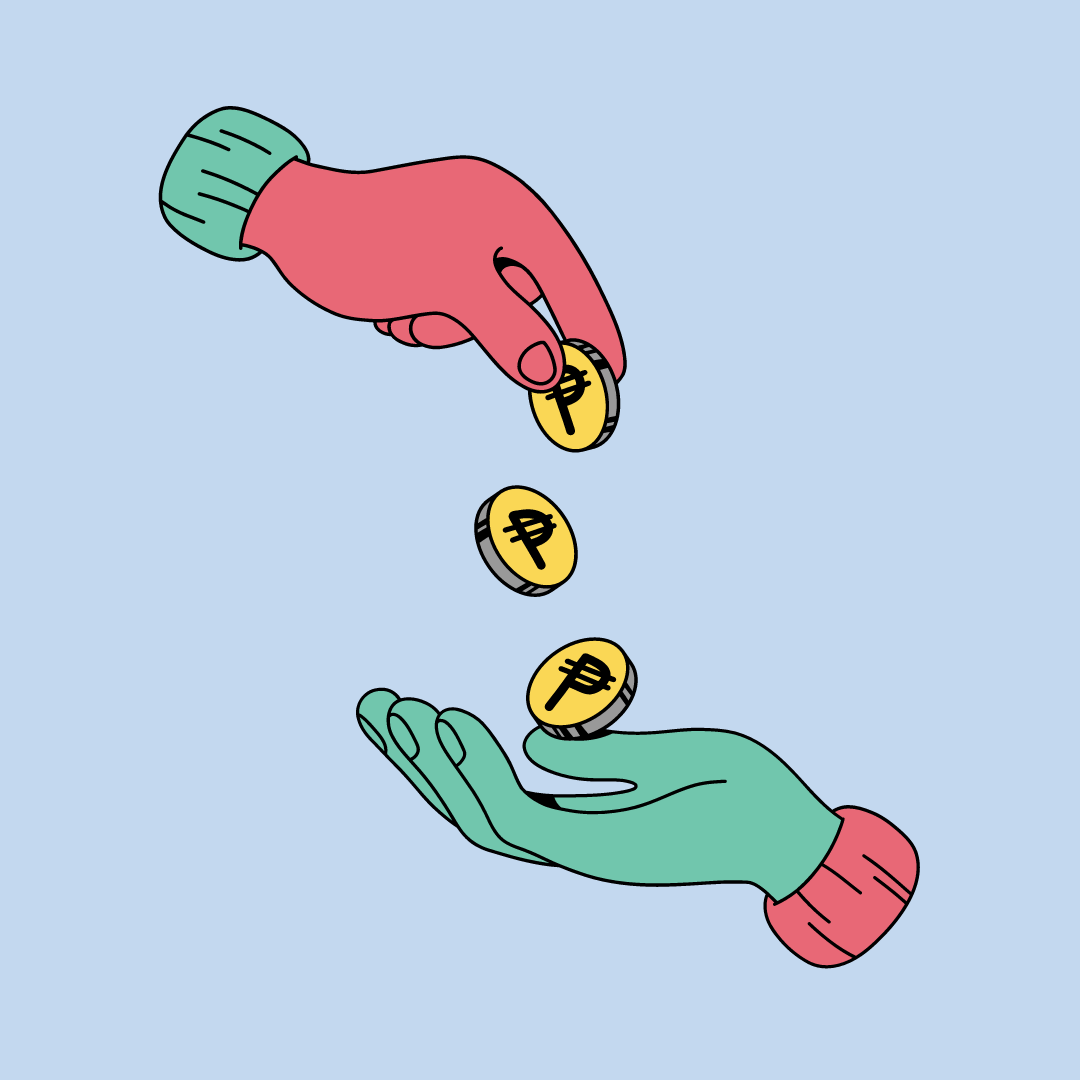
Understanding the Basic Concepts
Intoday's interconnected world, the ability to deposit money into someone else's bank account is a valuable skill. Whether you're helping a friend in need, managing household expenses or running a business, understanding the nuances of transferring funds securely is essential. Bank-to-bank transfers are a popular method of transferring money from one bank to another, using external transfer functions on bank and credit union websites as viable locations for these services. Comparing bank-to-bank transfers with other methods, such as wire transfers and money transfer apps, is crucial, as there may be potential fees and limits to consider.
Different Methods for Depositing Money
Thereare numerous ways to deposit funds into another person's bank account, including knowing the recipient's bank account details for wire transfers, which is crucial for a smooth transaction:
- Cash Deposits: Making a cash deposit directly at a bank branch is simple, but may be subject to limitations or restrictions due to security policies.
- Bank-to-Bank Transfers: Online bank transfers or wire transfers between bank accounts are commonly used for larger or urgent transfers.
- Third-Party Services: Using money transfer apps such as Venmo, Apple Cash and PayPal is a popular and easy way to send money instantly electronically. These apps require users to create an account, link a payment source such as a bank account or card, and ensure that the recipient has an account with the same app, offering a convenient solution for quick person-to-person transfers.
- Checks: Depositing a personal or cashier's check may be safer when transferring significant amounts.
This section may discuss the benefits of each method, such as minimum direct deposit amounts or possible wire transfer fees, and expected time frames, from same business day to a few business days for processing.
Step-by-Step: Depositing Cash and Checks
Depositingmoney into someone else's bank account can be essential for a number of reasons. People often need to transfer funds to pay rent, help family members, or settle bills directly into another person's account. This process, which involves transferring money directly into another person's bank account, usually through ACH transfers or wire transfers, is legal and regulated to prevent problems such as money laundering. It is crucial to have accurate details such as the recipient's bank account number and bank routing number. By following these detailed steps, you can ensure that your transactions run smoothly and securely.
To deposit cash or a check, follow these steps:
- Gather the Necessary Information: Obtain the account number and financial institution details of the correct person.
- Visit the Bank: At the bank branch, complete a deposit slip with the recipient's account number and the amount of cash or check.
- Verification: Some banks may require identification, especially if you are depositing into someone else's account.
- Receipt: Always obtain a receipt as proof of the cash deposit or check deposit, ensuring that the funds reach the recipient's bank account.
Online Transfers and Mobile Payments
Usingonline or mobile banking to deposit money offers convenience and speed. Here's how to use these platforms effectively:
- Setup: Make sure both parties have active online accounts. This may involve linking a debit card or setting up a mobile banking app.
- Execute the Transfer: To transfer money, use the recipient's bank account details or employ various electronic methods, including applications such as Venmo, PayPal, Zelle or Western Union, for a seamless transaction experience.
- Confirmation: Both the sender and the recipient must receive confirmation that the money has been deposited in the recipient's savings or checking account.
Privacy and Security Considerations
Whensending money to someone else's bank account, consider these privacy and security measures:
- Check the Details: Double check the recipient's account details, including the bank account number and bank routing number.
- Security ProtocolsUse secure networks for online transactions to prevent data breaches.
- Monitor Transactions: Regularly review your bank statements to detect any unauthorized transactions quickly. Be aware of the legal issues and financial institutions' policies related to depositing money into someone else's account.
This is a process that can be mastered with careful attention to detail and security. By following the steps outlined above, you can ensure that your money transfers are effective and secure. Remember, the key to successful financial transactions lies in thorough preparation and vigilant follow-up, ensuring that each transaction strengthens trust and security in our financial systems.

Legality and Compliance
Banks arerequired by law to report certain types of transactions to regulatory agencies to prevent and monitor illegal activities such as money laundering. In the United States, for example, financial institutions must file a Cash Transaction Report (CTR) for cash transactions exceeding $10,000 during a single business day. Similarly, suspicious activities that may not meet the CTR criteria but are unusual or have no apparent lawful purpose must also be reported through Suspicious Activity Reports (SARs).
For depositors and recipients, this means that any large transaction could lead to additional scrutiny. It is important that both parties maintain records of the source of funds and the purpose of the transaction, as these could be required in an investigation or audit. Being aware of these requirements helps ensure that both parties maintain transparency and avoid unintended legal complications.
Legal Implications of Transferring Money on Behalf of Others
Whentransferring money on behalf of others, individuals assume significant responsibilities and should be aware of the legal framework governing such activities. The main legal concern here is the risk of inadvertently engaging in unauthorized financial practices, such as operating as an unlicensed money transmitter, which can carry severe penalties, including fines and imprisonment. It is crucial to have clear agreements and records when handling financial transactions for another person, particularly in commercial or caretaking scenarios.
In addition, transferring money on behalf of others may expose a person to fraud risks. If funds are misused, both the person handling the transaction and the recipient could face legal action or financial loss. It is advisable to use documented methods and formal channels for transferring money to protect against misunderstandings or fraud, ensuring that the funds are used for their intended purpose.
Guidelines for International Transfers
Internationaltransfers are not only more complex due to the involvement of multiple financial systems, but also come with stricter compliance measures. When sending money overseas, the regulations of both the sender and recipient countries must be considered. Compliance requirements may include providing additional identification, disclosing the source of funds and detailing the purpose of the transfer.
Currency conversion rates and fees are also significant factors in international transfers. Exchange rates can vary considerably depending on the financial institutions or services used, which could affect the amount received at the other end. In addition, international wire transfers are subject to regulations such as those imposed by the Office of Foreign Assets Control (OFAC) in the U.S., which may block transactions involving specific countries, individuals or entities.
Understanding these guidelines helps ensure that international money transfers are executed smoothly and legally, minimizing the risk of delays or legal problems and ensuring compliance with global regulatory standards.
Send money to your country safely⁴
Send abroad with peace of mind with your Comun bank account¹
Open your account in 3 minutes!
Conclusion
Depositingmoney into another person's bank account is a process enriched with various methods, legal considerations and practical steps to ensure safe and secure financial transactions. There are various methods, legal considerations and practical steps to ensure safe and secure financial transactions when depositing money into another person's account. Whether you choose to deposit cash at a bank branch, use online transfers or make mobile payments, understanding the intricacies of each method is crucial to effective money management.
This article has explored the legal frameworks that protect these transactions and the compliance measures necessary for both domestic and international transfers, providing you with the knowledge to navigate this arena with confidence. Remember, the key to successful financial transactions lies in thorough preparation and vigilant follow-up, ensuring that each transaction strengthens trust and confidence in our financial systems. With this knowledge, you are well equipped to handle the responsibilities of depositing money into someone else's account efficiently and ethically.











.svg)